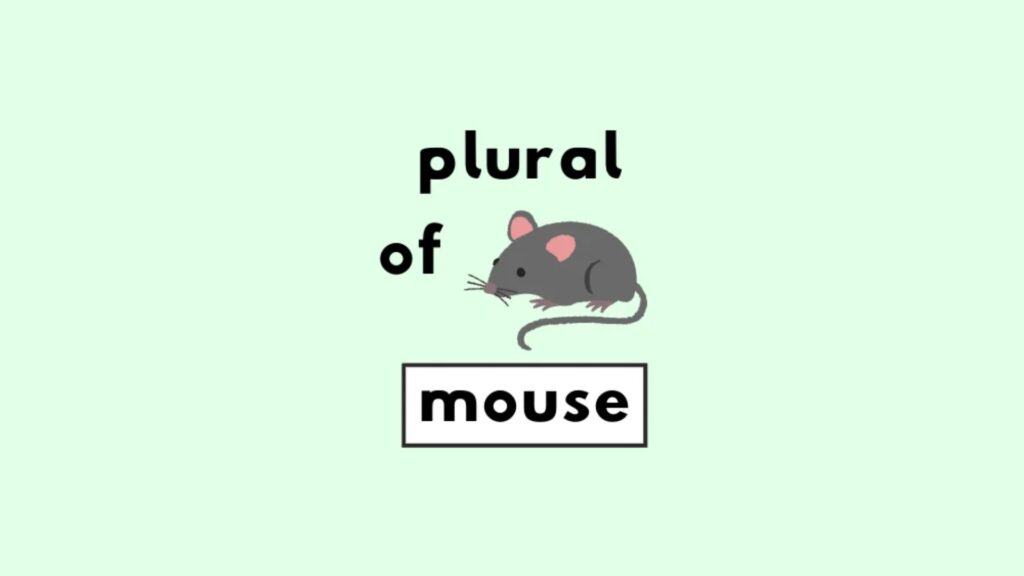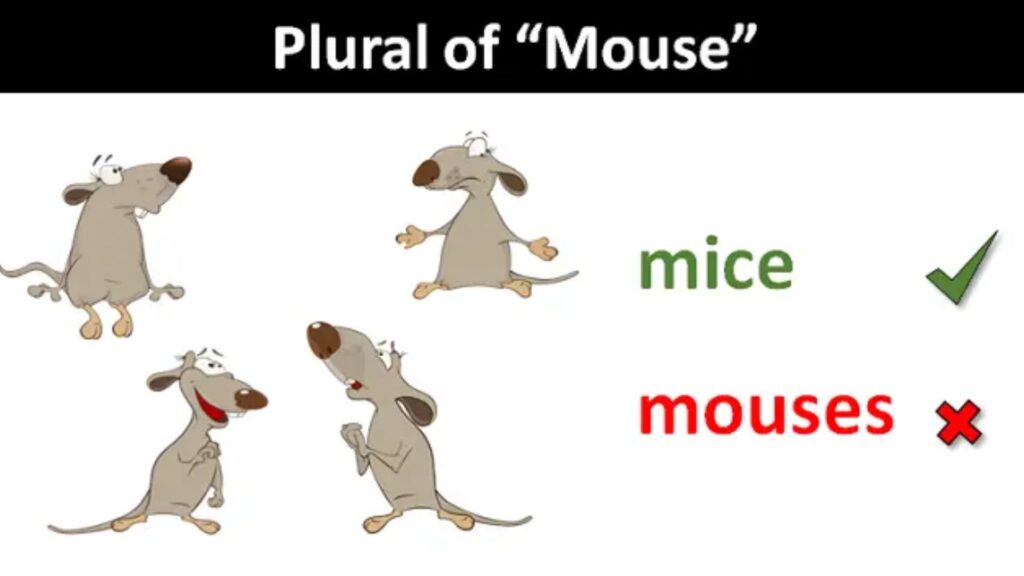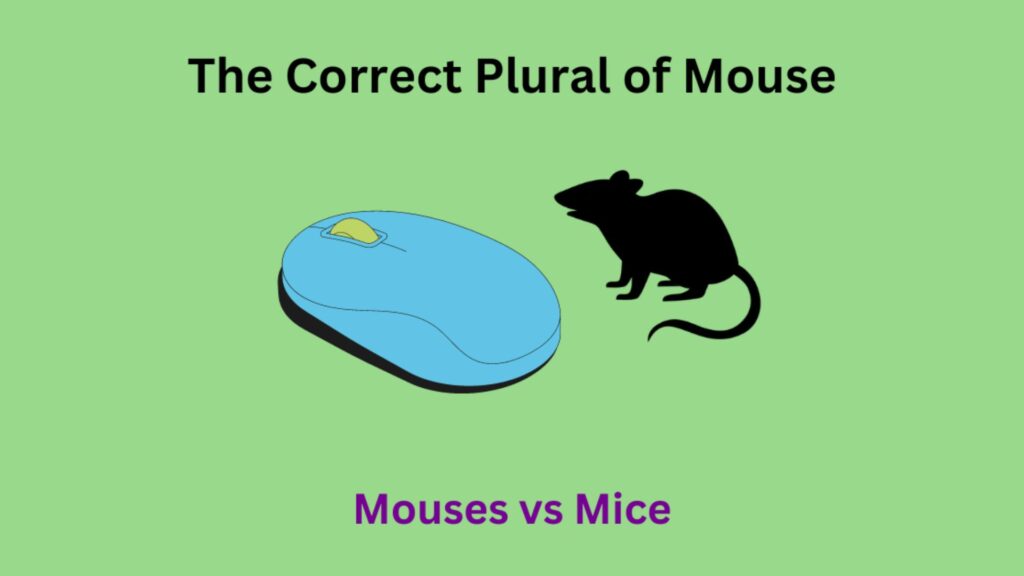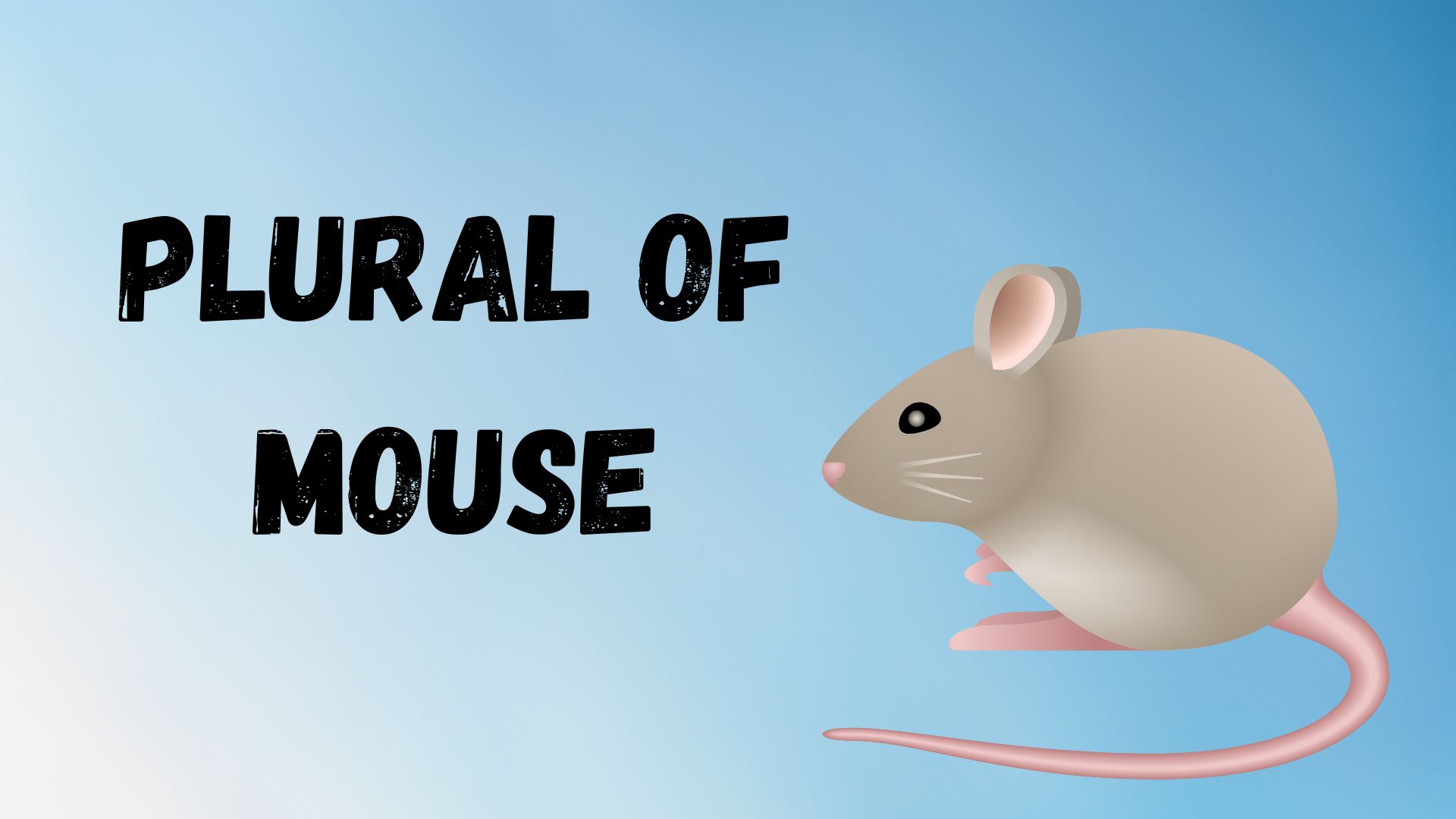English is full of quirks, and irregular plural nouns are some of the most confusing. One word that often puzzles both native speakers and learners is “mouse.” You’ve probably heard someone say “mouses” in a computer store, and “mice” when talking about pests in the attic. So, what’s going on here?
Let’s break it down clearly, with grammar tips, real examples, and a touch of humor because hey, learning should be fun.
The Standard Plural of Mouse in English Grammar

Let’s get the basics out of the way first.
In everyday English, when referring to the animal, the correct plural form of “mouse” is “mice.”
This follows an irregular noun pattern, where instead of adding -s or -es, the word changes internally.
📌 Quick Grammar Note:
“Mouse” → “Mice”
“Louse” → “Lice”
(Notice the pattern?)
These are remnants from Old English and Germanic roots. That internal vowel change is called i-mutation, and while rare, it sticks around in a few commonly used words.
Mouse vs. Mice: Sentence Examples
Let’s look at a few real-world examples that show correct pluralization.
✅ “The farmer found mice in the grain shed.”
✅ “There were mice scurrying around the kitchen last night.”
❌ “There were many mouses in the field.”
Using “mouses” for the animal form is grammatically incorrect. You’ll likely get a funny look if you say it that way unless you’re talking about computer mice, but more on that in a bit.
Scenario Example: Pest Control Email
Hi Elena,
During our routine inspection this morning, our technician spotted signs of mice near the back storage area. We recommend sealing all dry food packaging and setting traps.
Let us know if you’d like us to begin treatment immediately.
Brent M.
See how “mice” fits naturally when referring to multiple rodents?
Why “Mouses” Isn’t Always Wrong
Now comes the twist.
When we’re talking about technology, the rules bend. In computing, the word “mouse” (as in the computer mouse) has its own pluralization history.
- ✅ Computer mice (most common and accepted)
- ✅ Computer mouses (less common, but also accepted)
Both are correct, but usage depends on the speaker, context, and even the industry or region.
🖱️ Usage Example:
“I plugged in two new computer mice to test their responsiveness.”
“The inventory system logged four mouses as replacements.”
💡 Study Tip:
Think of “mouses” as a technical term that evolved to avoid confusion with the animal.
Scenario Example: Tech Support Message
Hey team,
Can you confirm whether the mouses delivered yesterday are compatible with the new laptops? A few employees are having trouble getting them recognized after they’re plugged in.
Thanks!
Sarah
Perfectly natural in a corporate tech setting, right?
Animal Facts: All About Mice (the Rodents)

Outside of grammar, let’s not forget that mice are fascinating little creatures. Classified as rodents, they’ve adapted to thrive in all kinds of environments from forests to city apartments.
🐭 Key Biological Features:
- Pointed snout
- Rounded ears
- Scaly tail
- Pink skin on babies (often called pinkys or pinkies)
- High breeding rate
🎯 Fun Fact:
A baby mouse is sometimes referred to as a “pinky” due to its appearance right after birth.
Animal Group Names for Mice
Ever heard of a mischief of mice? That’s right.
Collective nouns add charm to English, and mice have their own quirky ones:
- Nest of mice
- Mischief of mice
- Horde of mice (less common but used in storytelling)
These terms often show up in literature or scientific texts.
🦊 Natural Predators of Mice
Mice are low on the food chain, which means they’re hunted by many animals:
- Cats
- Foxes
- Owls
- Snakes
- Wild dogs
- Birds of prey
- Even some arthropods like large spiders
Understanding this context helps when you’re reading or writing about the ecological role of rodents.
Irregular Nouns: Mouse Isn’t Alone
“Mouse” isn’t the only noun that plays by different rules. Other pluralization of irregular nouns includes:
| Singular | Plural |
|---|---|
| Mouse | Mice |
| Louse | Lice |
| Man | Men |
| Woman | Women |
| Tooth | Teeth |
| Foot | Feet |
| Goose | Geese |
These irregularities are part of what makes English grammar both challenging and interesting.
Quick Grammar Table: Mouse vs. Mice vs. Mouses
| Word Form | Use Case | Plural Form | Grammatically Correct? |
|---|---|---|---|
| Mouse (animal) | Zoological/biological context | Mice | ✅ |
| Mouse (tech) | Computers, peripherals | Mice / Mouses | ✅ (both accepted) |
| Mouses (animal) | When referring to rodents | ❌ (incorrect usage) | ✖ |
Common Grammar Mistakes to Avoid
Let’s clean up a few mix-ups:
❌ “There are five mouses living in the barn.”
✅ “There are five mice living in the barn.”
❌ “We need to order new mice for the computers.”
✅ “We need to order new computer mice (or mouses) for the computers.”
Context is everything.
Final Thoughts: How to Know When to Use Mice or Mouses

Here’s a solid rule of thumb:
- Talking about the animal? Use mice.
- Talking about the tech device? You can use either “mice” or “mouses,” depending on audience and tone.
If you’re writing an academic article or a blog on grammar, lean toward “computer mice” it’s widely accepted and preferred.
If you’re in a casual business setting, “mouses” might be more common among your peers.
Quick Recap
- “Mice” is the irregular plural of “mouse” when referring to animals.
- “Mouses” is acceptable when referring to multiple computer devices.
- Context determines correct usage.
- Keep a lookout for other irregular noun forms they often follow similar patterns.
Whether you’re emailing a colleague, writing a research paper, or teaching a classroom, knowing when to use mice or mouses can help you sound polished and professional.
🧠 Final Study Tip:
Next time you’re unsure about a plural form, think about the category of the noun is it biological, technological, or something else entirely?
English is flexible, but clarity is king.

